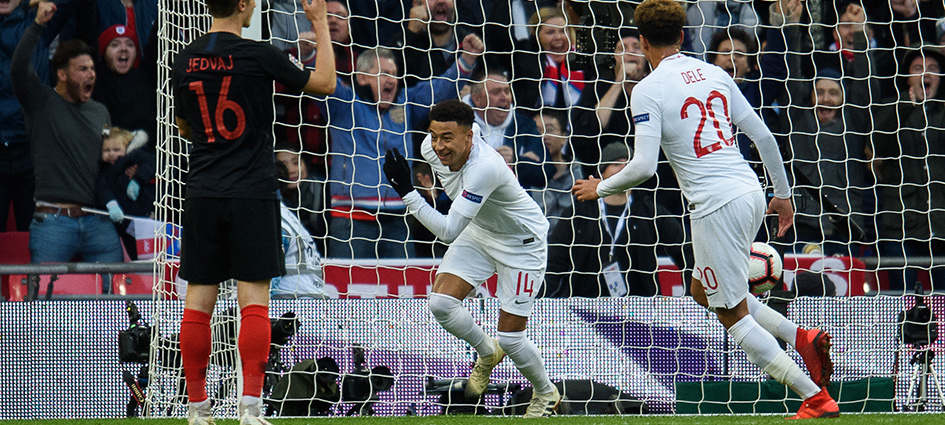
Jesse Lingard: my development journey
- The Boot Room
- 06 May 2020
England midfielder, Jesse Lingard, reflects on his pathway through the Youth Development Phase at Manchester United, sharing insights from his own journey as considerations for 12-16 year old players and their coaches.
Each individual person and each individual journey is unique. Recorded in the 2018/19 season, this solely provides one England international player’s personal reflection on what was important to him in his journey.
In the Youth Development Phase, it remains important to prioritise players’ 'love of the ball and 'love of the game' through the environments created and the experiences provided. It's vital that adolescents 'play with freedom', meaning they can express themselves and further explore their individual and collective capabilities.
In this phase, youngsters will go through transitions – not just in football, but in their life in general – and will need appropriate support. They'll each grow and develop at different times and in different ways, so providing appropriate support and challenge for each individual, although not easy, is essential.
Before watching the video, here are some questions to consider as a coach:
- How deeply do you foster a ‘love of the ball and love of the game’ in the players you coach?
- If you have a relatively small or late maturing player, now or in the future, in what ways would you provide appropriate support and challenge?
- How do provide support and challenge in difficult moments during individual players’ journeys?
As highlighted in the video, players 'playing with freedom', expressing themselves and being encouraged to explore their game is vital. Continuing to play various positions through the Youth Development Phase can be useful for developing broader game understanding and can also provide more suitable experiences depending on their individual stage of development. For some, spending more time in a familiar position can best aid their development, this takes careful consideration for coaches.
Noticing football intelligence in the players you coach isn’t always easy; players with outstanding physical and technical attributes are often easier to spot, but perseverance with later maturers is crucial.
- How do you help players continue to explore their positions through the Youth Development Phase?
- What can you do to further notice, value and promote players intelligently seeing, creating and using space?
- To what extent do you actively encourage players to think 'in action' to find intelligent or creative solutions to problems they face in the game?
'Getting a picture' through scanning and anticipating are common traits in intelligent footballers. This must be valued and players should actively be encouraged to think ahead – as well as technically being able to thrive in the moment and react instinctively.
Once players have excellence in 'staying on the ball', the Youth Development Phase can be a great time to focus on connecting and combining well with teammates. Players also tend to be ready to make more intentional movements off the ball to better support teammates or make forwards runs to disrupt an organised defence.
The purpose of this article is to provide one real-life example of a developmental journey in order to provide points of consideration when coaching players in the Youth Development Phase. Each individual is unique and it’s important to reflect on this in order to figure out what this means for you, when appropriately coaching 12-16 year old children.
To find out more, explore our Youth Development Phase DNA playlist.


